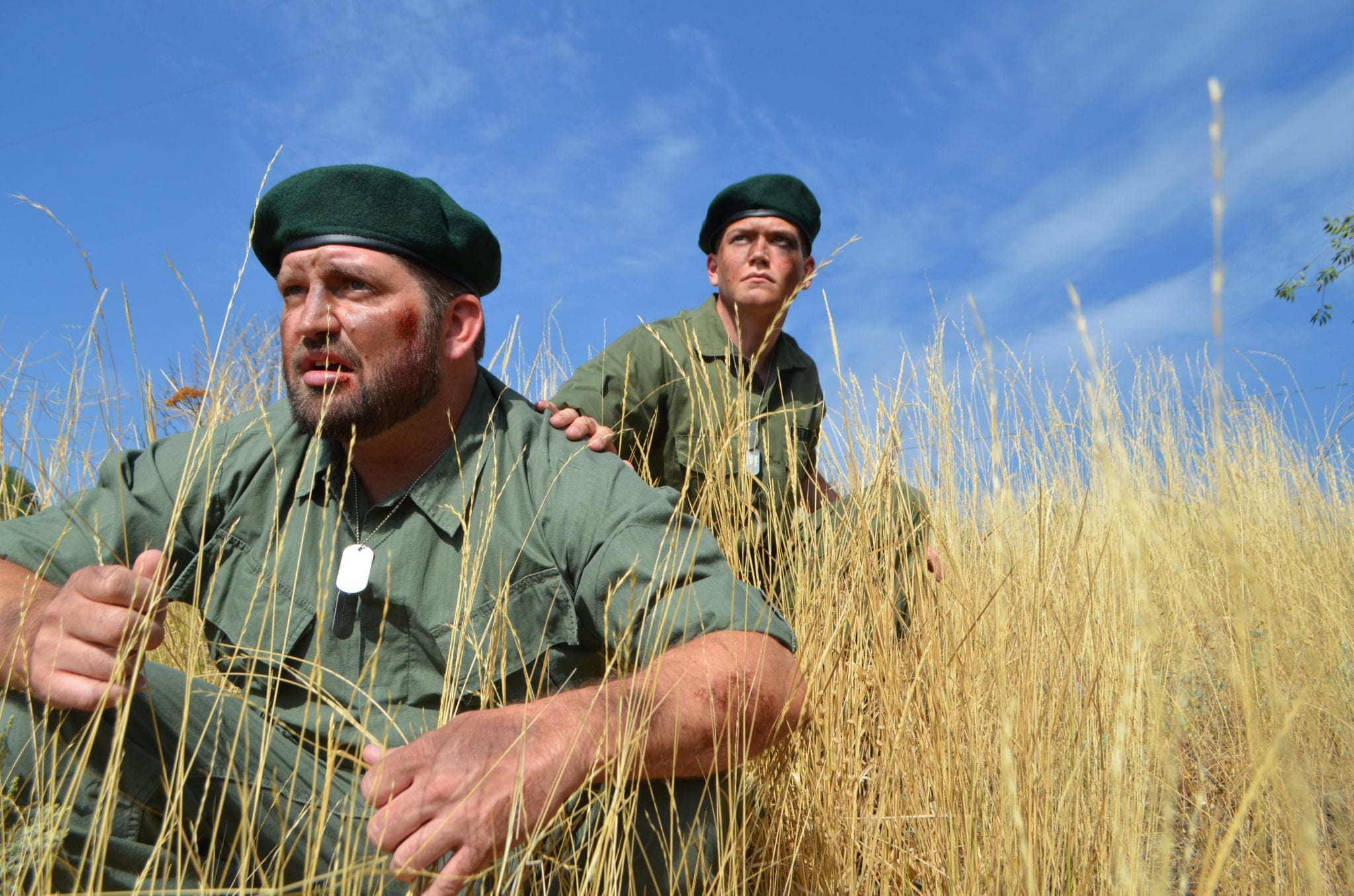SALT LAKE CITY — As one of Greek myth’s most popular and beloved characters, Herakles is most widely known for his daring feats of courage, fortitude, and epic demigod strength. The lesser-known part of his story, however, is what happens after he returns home from battle. A soldier himself, Euripides (the playwright) had firsthand knowledge of the psychological trials that awaited warriors upon deployment, and his Herakles is an examination of the brutal reality of post traumatic stress disorder in a time that didn’t have many resources for those afflicted.

Director Hugh Hanson has chosen to move the setting of Herakles from ancient Greece to a post-Vietnam America. The volatile time in our nation’s history was a fitting time in which to place this story, as it deals heavily not only with war-weary former soldiers, but with how it effected those they left behind. Infused into this highly conceptualized production was live music composed by Ryan Fedor and giant Bunraku-style puppets built by Glenn Brown that were operated by the chorus. The level of creativity that went into this production is to be lauded, as it not only enhances the story, but serves it, too. It is a difficult thing to present the realness of tragedy and mental illness with the height that classical Greek theater demands, but Hanson and his cast mount a stirring piece that accomplishes this task.
As the title character, Joel Huff was able to find the balance between real emotion and the showing of tragedy, which is what this play called for. An imposing figure, he was both intimidating and sympathetic as his character goes from the mighty hero we all know to the defeated man bemoaning his fallen state. In one scene wherein Herakles lamented his entire life’s creation, calling, and purpose, he sat on the ground, his legs stretched in front of him in an almost childlike posture that denoted a kind of retrogression brought by grief and madness. It is, again, a tricky balance to strike, and not every actor on the stage was equal to it, but I was pleased that Huff managed to pull it off.
 Indeed, apart from Huff and some strong moments from Dave Hanson as Amphytrion, the most magnetic performances came from the chorus. Some lovely singing (in particular on the part of chorus members Savannah Moffat and Vanessa Vega), and 100% commitment to the avant-garde nature of the piece made the chorus members thoroughly entertaining through the piece. As is the custom in ancient Greek theatre, the chorus remain onstage for most of it, and preserving this aspect of the genre was enjoyable because of actors like Moffat and Vega. One unfortunate thing, however, was that the live guitar (played by Fedor), was often quite loud, drowning out the dialogue, whether spoken or sung. I spoke to the director, however, and hopefully this is a problem that will be fixed in subsequent performances.
Indeed, apart from Huff and some strong moments from Dave Hanson as Amphytrion, the most magnetic performances came from the chorus. Some lovely singing (in particular on the part of chorus members Savannah Moffat and Vanessa Vega), and 100% commitment to the avant-garde nature of the piece made the chorus members thoroughly entertaining through the piece. As is the custom in ancient Greek theatre, the chorus remain onstage for most of it, and preserving this aspect of the genre was enjoyable because of actors like Moffat and Vega. One unfortunate thing, however, was that the live guitar (played by Fedor), was often quite loud, drowning out the dialogue, whether spoken or sung. I spoke to the director, however, and hopefully this is a problem that will be fixed in subsequent performances.
Another element I enjoyed was listening to a pre-show lecture by dramaturge Jim Svendsen. Anne Carson’s translation of Herakles is accessible enough that most audience members shouldn’t have trouble following the action. But as a card-carrying nerd, I rather enjoyed Svendsen’s brief dissertation on the history of the myth and the theories surrounding the play and its author. My thought is that if you’re going out for a bit of classical theater, it might as well be as educational as it is entertaining, and this play was both. Herakles will be touring all over the valley, so it will be easy to catch this rarely seen play, and well worth audience members’ time and attention.
[box]The Classical Greek Theatre Festival production of Herakles plays at the Courage Theatre on the campus of Westminster College on September 9 and 10 at 7:30 PM before touring locations in Salt Lake, Utah, and Weber Counties. Tickets at the Westminster College performances are $7-15. For tour locations and more information, visit www.westminstercollege.edu/greek_theatre.[/box]
